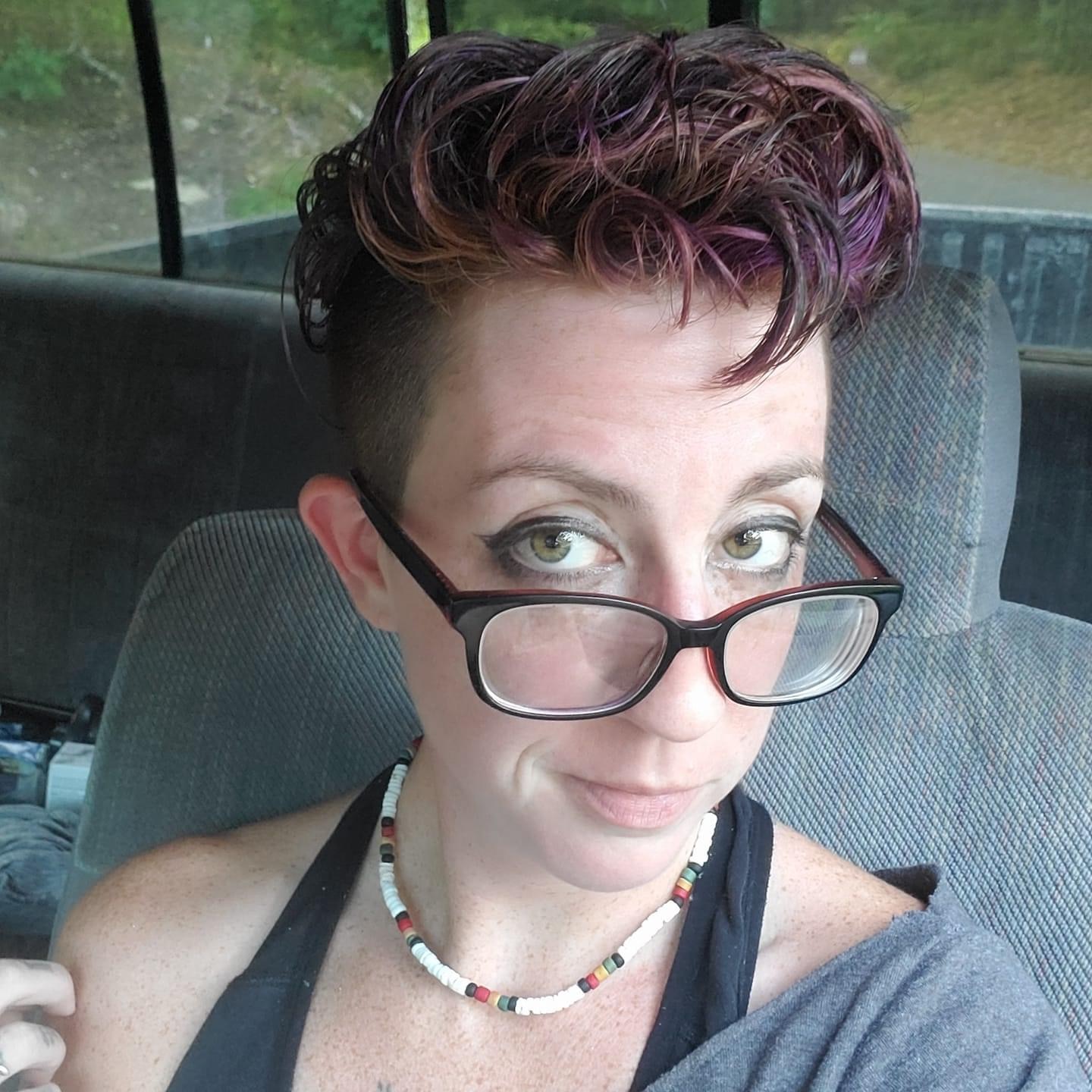
Content Warning: ABA, sexual assault
Today on Neurodiversity News, we have interviewed JayJay Mudridge, who runs the page, Not Another Autistic Advocate. They are also an Applied Behavioral Analysis (ABA) survivor, and recounts their experiences with us.
Neurodiversity News: Tell me about yourself and what you do.
JayJay Mudridge: My name is JayJay Mudridge. I’m a 30-year-old Autistic self-advocate, multiply published poet, hobbyist mechanic, offroader and CrossFit doer, and a professional academic tutor. I run the page, Not Another Autistic Advocate, where I try to dispel cultural myths about Autism and Autistics. It is kind of “Autism education from an Autistic educator,” if you will. I have work published in autistic anthologies as well, like Jude Morrow’s upcoming book and have a video series coming up for Ausome Training.
NN: Could you tell me about your experiences growing up with ABA and how it has impacted you in the long term?
JM: I was in ABA for about twelve years, beginning around age four; it got less and less around my teenage years and eventually fully stopped around age 14. I can firmly say that ABA stole my childhood, and the resulting (professionally diagnosed) complex post-traumatic stress disorder stole my adulthood. ABA groomed me for every trauma I endured later in my life, from abusive relationships in my adult years where I was physically and mentally injured by partners, to being molested for seven years, starting at six years old, by my uncle.
I was nonspeaking until I was 12. I understood language, and I consider poetry my first language—it was a special interest at the time I was nonspeaking and remains one to this day—but my lack of verbal-vocal speech was a motor function trouble. ABA, quite literally, starved words out of me. Around age 12, it was decided by the behavior therapists who were doing ABA to me that I was a “big girl” who needed to ask for food. They decided food would be a motivator for me, as if I needed motivation to speak rather than needing help strengthening my muscles, motor planning skills, or moving my body intentionally. My two guaranteed meals were at school as I grew up pretty poor, and it was written into my behavior plan by the people traumatizing me that I needed to ask to be fed—the nonspeaking child needs to ask. I related this story to a BCBA recently who had told me that ABA had changed; her response was, “well, it worked.” I feel this anecdote demonstrates the fundamental cruelty of ABA.
I say ABA groomed me for my traumas because I believe that ABA and the existential torture that Autists are forced to endure via ABA is fundamentally child grooming. ABA employs a compliance-only and compliance-at-all-costs model, completely ignoring differences in Autistic neurology. For example, Autists have an increase in neuronal branching in our brains that makes our sensory system more sensitive and our mind-body more connected than that of neurotypicals. Instead of acknowledging differences in brain functioning behind Autistic traits, what ABA likes to call “behaviors,” ABA views us as a collection of arbitrary behaviors to be extinguished or promoted. A few examples are: I avoid eye contact because it causes me physical pain. I stim because my stims serve a purpose, whether that purpose is expressing my emotions or soothing my mind and body. As a child, I eloped because an environment was causing fear or pain. ABA did not, and does not—because the argument is, of course, that new ABA is different but clearly isn’t if it still doesn’t take into account physical differences in Autistic neurology—look for root causes. Instead, it forces the Autistic to endure fear and pain while suppressing outwards signs of it like crying, vomiting, eloping, covering ears, or flapping. Once the outward signs of distress are gone, ABA claims that the distress is gone. By the time my uncle began molesting me, ABA had taught me, through the way it forced me to endure pain for the comfort of others, that my body was not my own. When my uncle came to my room at night to molest me, the first thought in my child-mind was that this was the same thing as therapy, that if I was quiet and kept my body still, it will be over quicker than if I fought—because I learned that in ABA as well. When my first partner began hitting me when I was 18 through 20-something, I was convinced it was something to do with me, as if I was a bad or broken person who deserved it. ABA had taught me that the people who purport to love you will hurt you, and with the same breath, say they have your best interests at heart.
NN: I know you also went to the Walker Home and School. What is that and what happened there?
JM: It is a residential school in Needham, Massachusetts, where they employ prone floor restraints for things like stimming and was very, very ABA-heavy. It’s one of the reasons I’m terrified of being embarrassed in adulthood, because at Walker, much of the ABA involved what I consider to be public shaming; they would have sticker charts of level systems hung on the wall where all could see that you had “misbehaved.”
NN: Who are your greatest inspirations?
JM: It sounds cheesy, but any Autistic advocate who has been able to find a voice for themselves through the trauma of existing in a world that refuses to make room for us. Autistic culture is the public creating and consuming think pieces about how you lack empathy, reading tomes and tomes of research speculating how to prevent people like you coming into existence, while you bend over backwards to accommodate their lack of perspective-taking and narrow, unaccommodating worldviews.
NN: What do you hope to achieve in the future?
JM: In relation to Autism, I’d love to do advocacy full-time. Public speaking and education about Autistic culture and Autistic neurology is the goal. I just don’t know how to get there. I’m also a multiply published poet, and I’d love to get a collection of my work relating specifically to the Autistic experience published. Poetry is how I best express myself, and the most joyful thing about being alive is creating and consuming the written word. Outside of my advocacy work, I’d really like to become good enough at CrossFit to make it to the regional games in my state.
